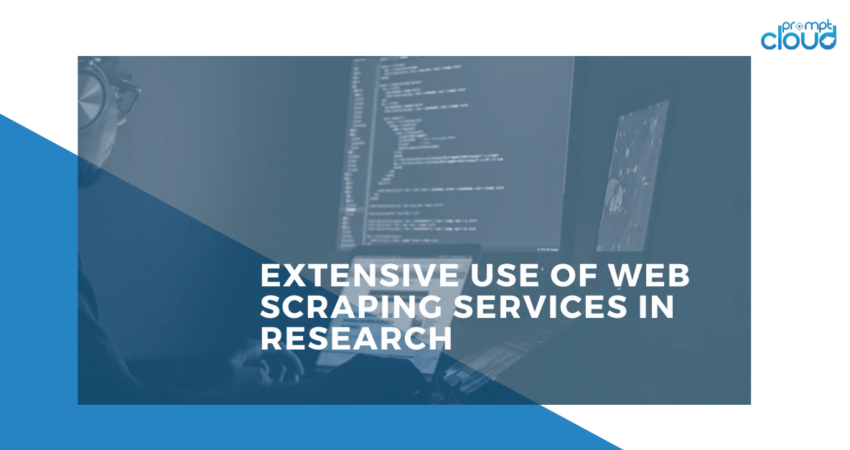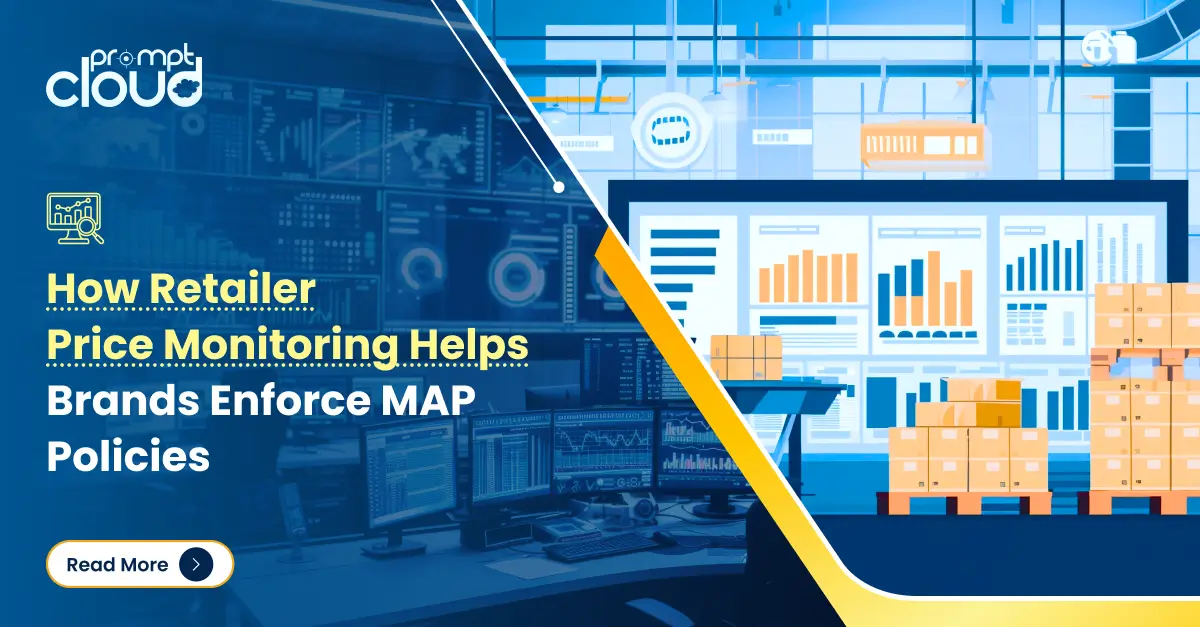
In a world where information is being spread at the speed of light through the Internet, it’s becoming incredibly difficult to keep track of it all and tell the truthful data from the false one. This is when web scraping services come to the fore to help you and make the situation much easier for you to solve. Web scraping for market research is especially effective for research as they help you collect precise and filtered data.
But what are web scraping services? Furthermore, what’s the essence of web scraping itself? To answer these questions, let’s first examine the definition of the term web scraping. Web scraping, also known as data scraping or web harvesting, is the extraction of data from websites; in other words, utilizing web scraping services or web scraping tools, you will be able to import data from a website (websites) into a spreadsheet or a file and have it at hand on your device.
Web Scraping for Market Research – The Advantage
Convenient: Web scraping is highly convenient and comes in handy. It will release you from copying and pasting the information you need from websites to have it at hand. Websites don’t let you save a copy of the data they offer, and you don’t always have the Internet or might not even remember the website name you used.
Time-Saving: The process of web scraping is automated, which is time-saving. You don’t have to do manual copy and pasting, especially when it’s about the huge amount of data. The web scraping service will automatically extract the information from several pages or websites according to your preferences. Web scraping for market research is especially effective for research as they help save time and money.
Multi-Functional: Together with the rise of the popularity of web scraping services, new functionalities are added to them. You can now extract information from any website and have ready-made statistics. These services are especially beneficial for businesses that want to track the latest innovations in their field or want to know what their competitors follow.
Easy Data Filtering: After having the data you needed at your disposal, it will be much easier to filter it and choose the information you need. Web scraping for market research is especially effective for research as they help in easy data filtration.
Financially Beneficial: Web scraping is a cheap way of accumulating data for many startups. With web scraping services, you won’t have to pay a bunch of money to hire a researcher or a team of developers for doing the data extraction. Web scraping services are much more affordable.
A huge amount of research has been carried out based on the data collected as a result of web scraping. These research studies were on several different subjects and had interesting statistical information and productive results. Below we have highlighted some use cases to display how scraped data can be used for research.
Use Cases of Web Scraping for Market Research
#1: Restaurant Menus Scraped for Research Purposes
Web scraping turned out to be useful even in the restaurant business. There is a huge amount of data available on the web regarding several different restaurants, their menus, the dishes they offer, etc. This information is a great source for research. There are many social sites and websites such as Yelp, Urbanspoon and Zomato that are a source of getting an idea about several different restaurants and their menus.
By scraping menus from Allmenus.com, you can gain all kinds of different menu items, their prices and details and of course, the restaurants (together with their locations) which offered these items. This data will allow you to create a customized app that lets the user filter the menu by cuisine and ingredient and even by the cooking method.
#2: Conquering the Competition with Scraped Data
The intense competition encourages you to thrive and achieve benchmarks that have been already set. Competition research or the understanding of the entire landscape is not about reinventing the wheel. But just understanding the strategies that have been trialled, tested, and succeeded and taken steps to match it or surpass it. The competitor websites are goldmines of information. Say, for instance, you want to know what your competitors are up to in terms of the events they attend, the pricing information on what their pricing plans are, or if they have any offers going on and the features attached to it. Web scraping will help you fetch this data from across the competitive landscape to feed your business moves.
Frequent monitoring of data scraped from these pages will help you plan and rethink your ideas. This first-hand information available through data collection in such structured formats will help you sneak into the competition and clash with them to prove an edge in the most subtle way.
#3: Lead Generation
Lead generation has always been a painful time-taking task. The potential prospects’ contact details to whom you intend to communicate your marketing messages are spread across the web in the form of email addresses on websites, social media, and business networking sites, and various other sources. Getting the email ids through inbounds sure is an effective way, but it drains your time and energy. Also, you will not have volumes of contact information in your database through this inbound exercise. This is where a tool that instantly scrapes data in volumes within a quick TAT will come in handy. It is time-saving and more cost-effective compared to expensive tools like discover.org and inside view.
These tools use the scraping technique in the back-end and put a hole in your pocket through fat pricing. As marketers, you’ve got to be more assertive in choice-making, particularly on the budget front. Scraping tools are trustworthy and get you leads based on the predetermined criteria (geography, designation, industry etc.) in the most structured format that makes planning targeted campaigns a more exciting job.
In Summary
It is infuriating to learn your efforts are busted. You carefully plan every step of your efforts and yet are not able to achieve what you intended to. Unfortunately, this is more common among digital marketers, as there are just so many strategies to figure out, constant brainstorming for ideas, polishing sentences to be just perfect.
While so much effort goes into creating the collateral, the groundwork and the promotions are not given the best thought in terms of better ideas and identifying the right prospects. As much as content creation is important, research and distribution are important too. That is where collating the right information gets into the picture. Data is distributed in so many formats and a lot of sources. Identifying and getting this information in a structured manner will help you analyze the trends and sentiments. This is where PromptCloud will help you architect the information you need in the most desirable manner.





















































